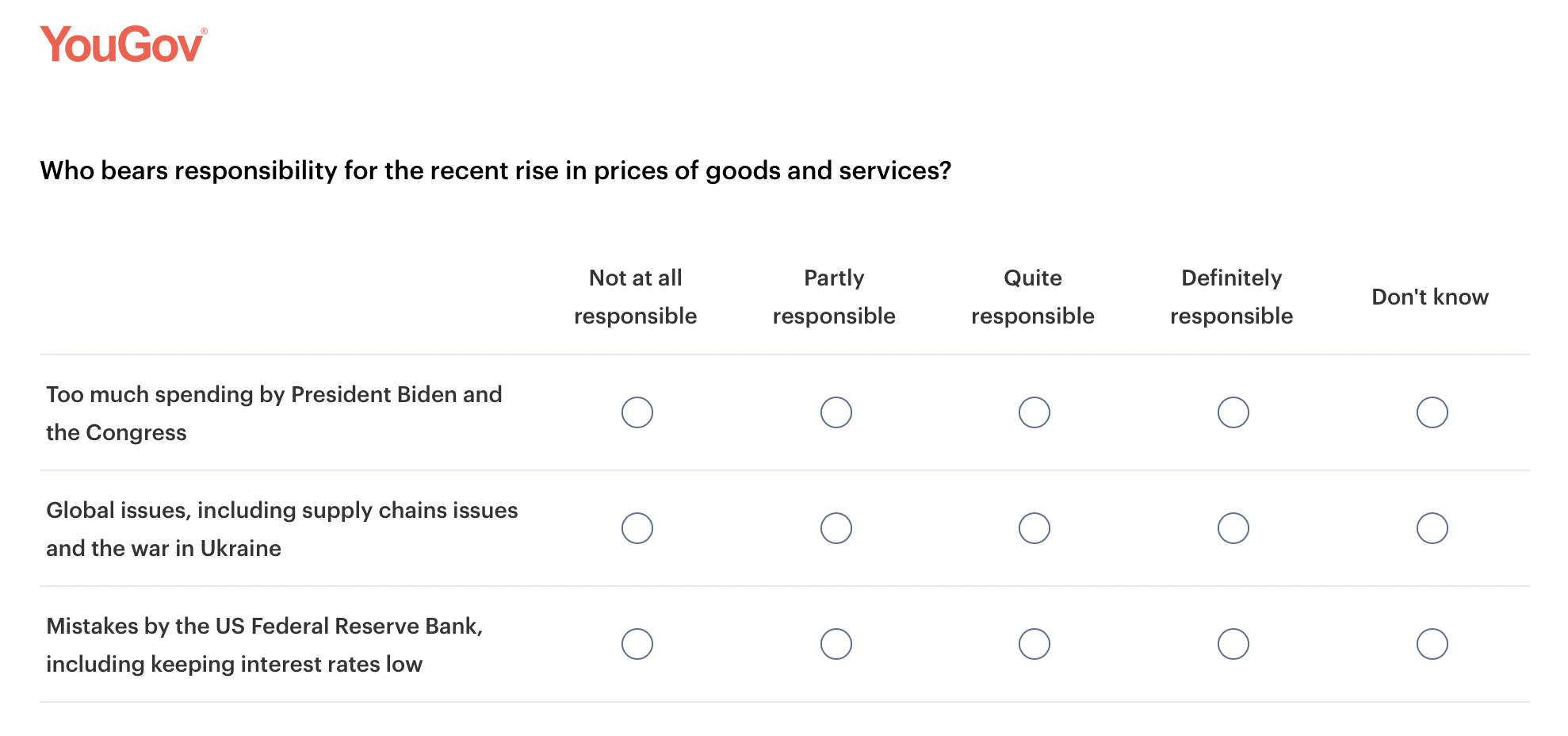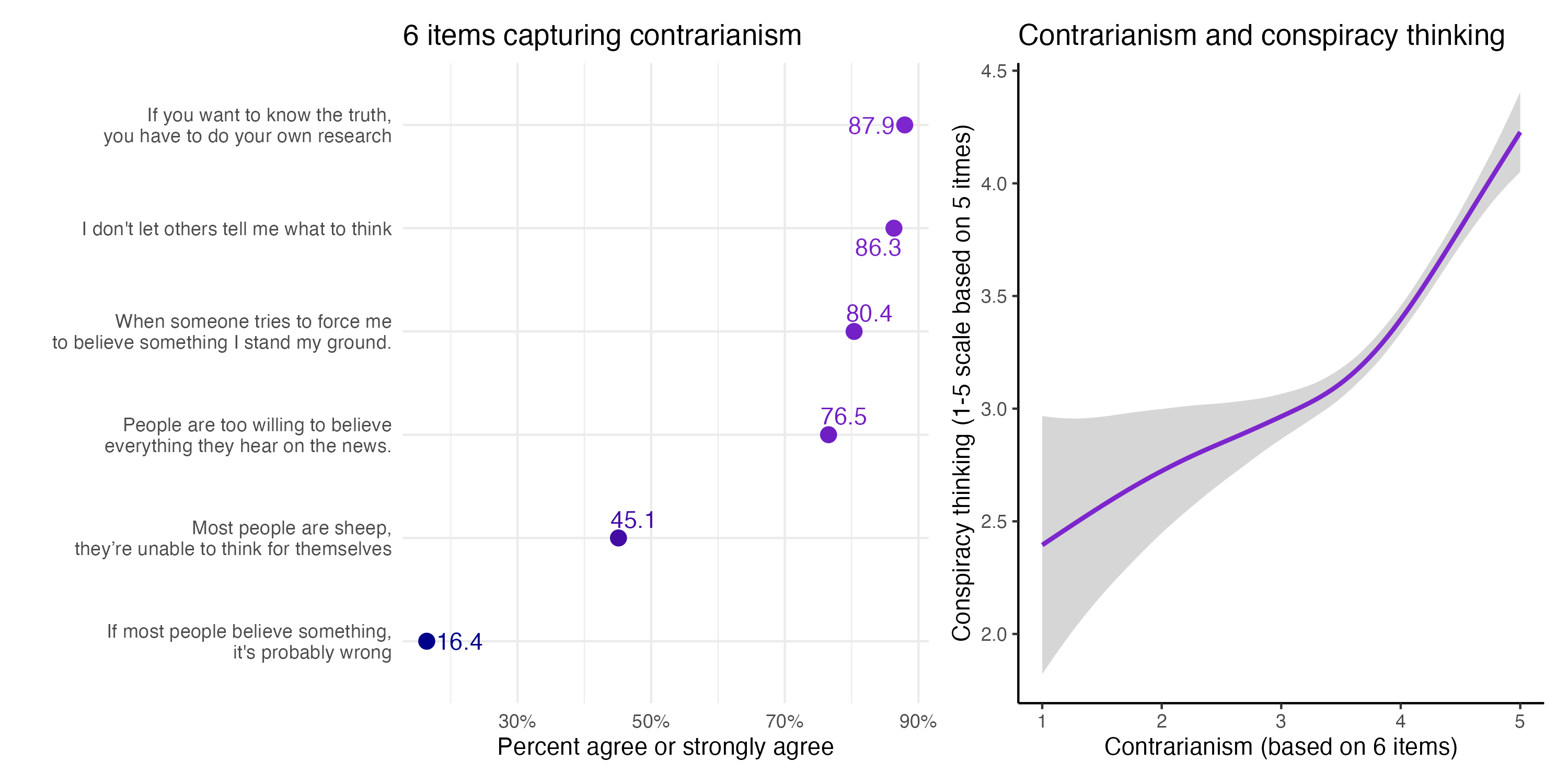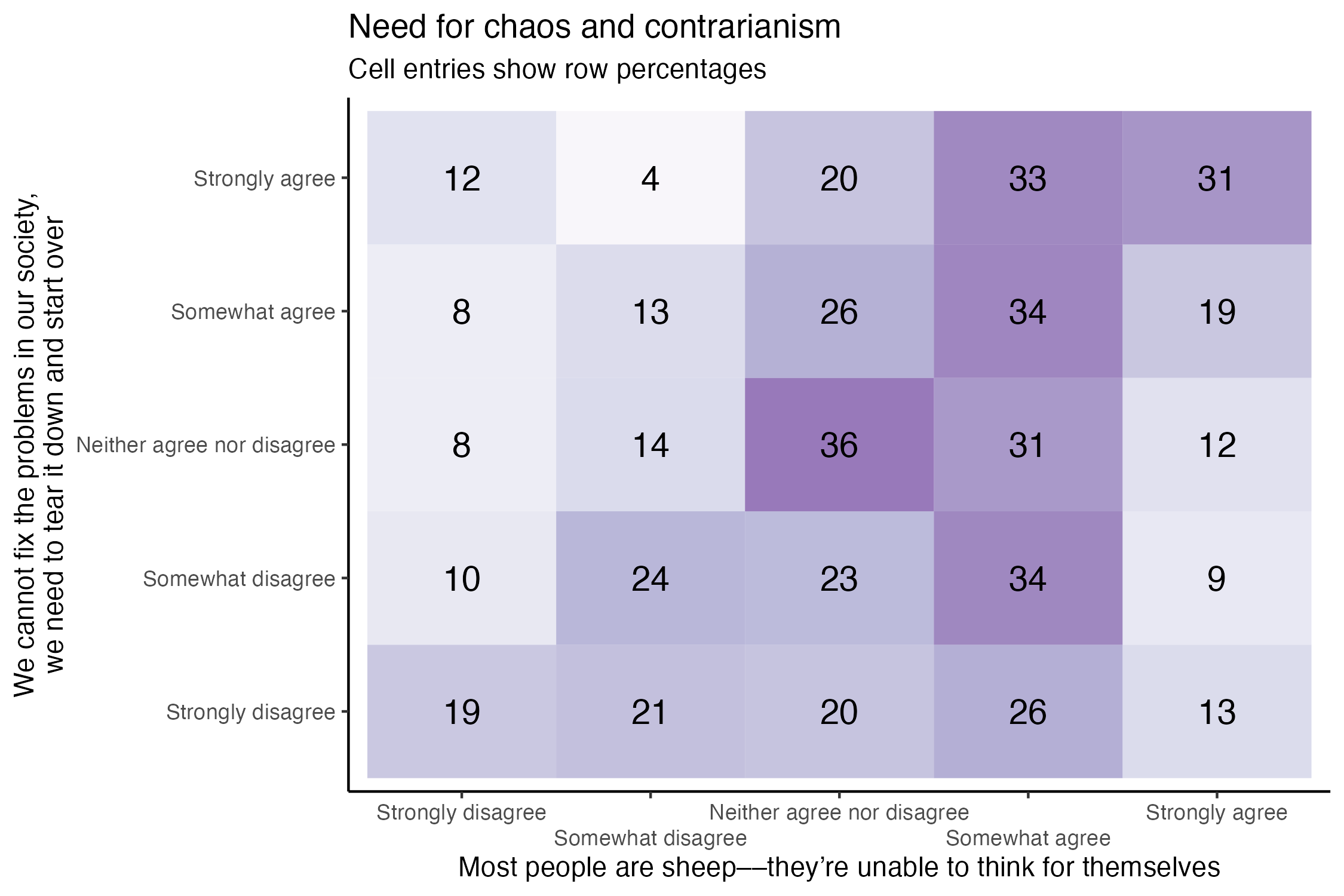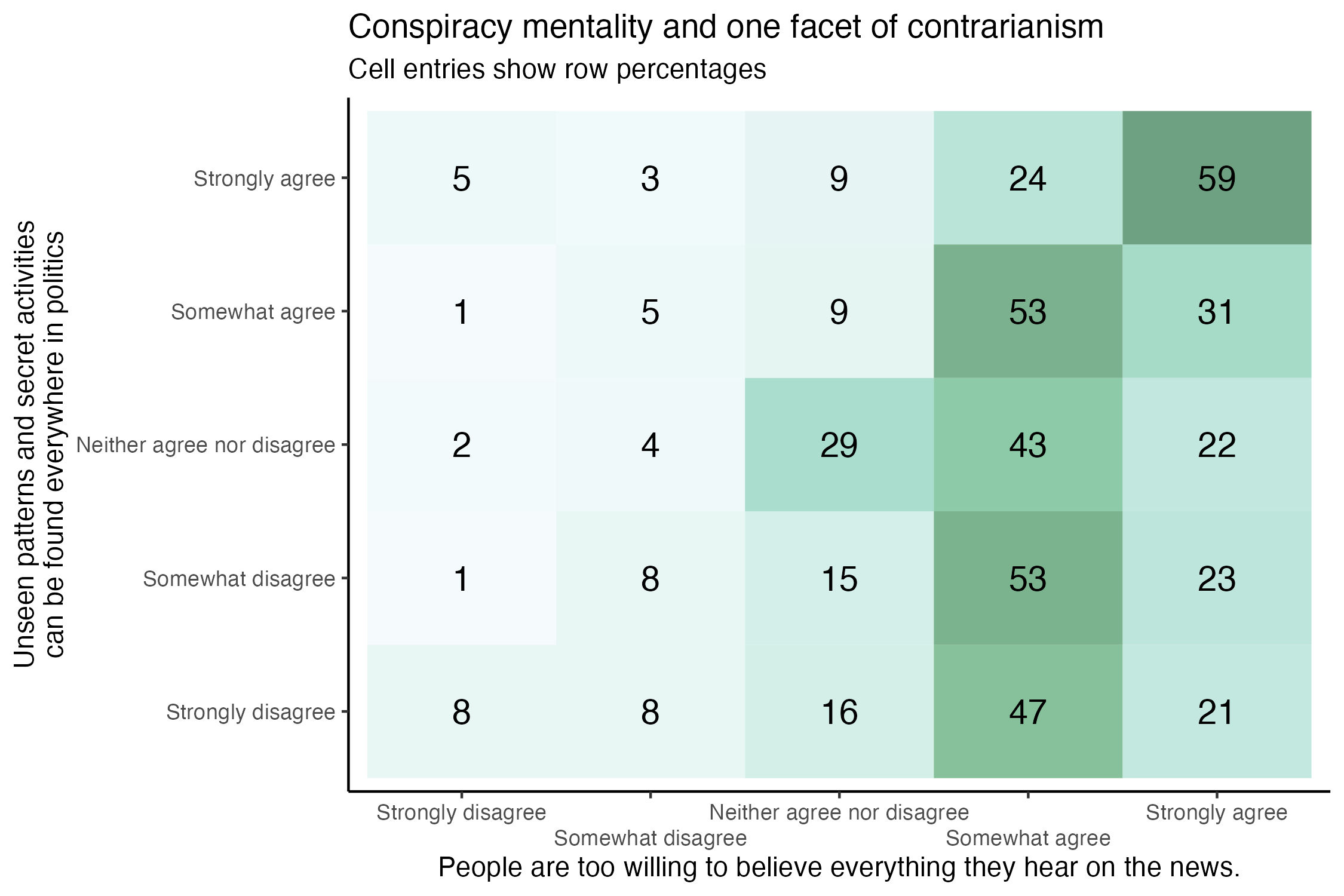Attributions of responsibility for inflation
Included the following set of items on a 2022 poll and randomly varied whether Biden was explicitly mentioned or not.

Anti-technology sentiment (project with Thomas Zeitzoff)
- I am worried that scientists are designing computer programs that could hurt humans.
- Social media has mostly been a bad thing for society because it spreads hate and misinformation.
- The reason our politics is so nasty is because of social media.
- Social media apps can hurt children and teenagers.
- Social media has made us lonelier.
- Most of the social media apps are spying on us.
- Social media makes people jealous of others.
Reverse-coded:
- Social media has made it easier for me to stay connected with my friends and family.
- Social media platforms can be a powerful tool for activism and social change
Accusatory & conspiratorial claims
These instruments were included on a survey as part of a project investigating the relationships between social status, victimhood/vulnerability, and beliefs in conspiracy theories:
- “Social media companies are hiding the truth about who is really to blame for the conflict in Ukraine.”
- “The war in Ukraine was started to benefit companies making and selling weapons.”
A contrarianism scale (with A. Enders)
- If you want to know the truth, you have to do your own research.
- People are too willing to believe everything they hear from the news.
- I don’t let others tell me what to think.
- When someone tries to force me to believe something I stand my ground.
- Most people are basically sheep, unable to think for themselves.
- If most people believe something, it’s probably wrong.
5-point scale: Strongly agree; Somewhat agree; Neither agree nor disagree; Somewhat disagree; Strongly disagree.



Economic intuitions
Included the following question and items on a 2020 YouGov survey:
To what extent do you agree with the following statements?
- Most economic problems in our country have simple, common-sense solutions.
- When other countries prosper, it is bad news for America.
- If someone becomes successful and makes a lot of money, it means that someone else has to make less money.
- Today, most companies don’t compete for customers, they prey on their customers.
- Trade with other countries makes most Americans better off because they can buy goods that are assembled cheaply abroad.
5-point scale: Agree strongly; Agree; Neither agree nor disagree; Disagree; Strongly disagree.
Attitudes toward free speech (with TUM and Oxford collaborators)
- “Self-censorship is never acceptable.” (1-7 scale)
- “Offensive speech can be useful.” (1-7 scale)
- “Comedians should be allowed to say anything.” (1-7 scale)